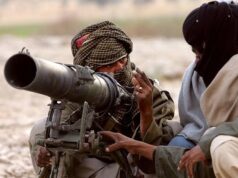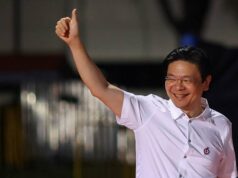Time to stop Russia-Ukraine conflict

On February 24, 2022, when the first gunshot at the Russia-Ukraine border shattered tranquility, most people did not anticipate that it would evolve into the largest military conflict on the European continent since World War II.
A year later, the Russia-Ukraine conflict has profoundly changed the international geopolitics, and severely weakened the foundation for international cooperation. Its spill over effects in various areas such as politics, security and the economy have far exceeded people’s imagination. This geopolitical conflict has become a microcosm of the turbulence of this era.
On Tuesday, Russian President Vladimir Putin and US President Joe Biden delivered speeches in Moscow and Warsaw, respectively, about the conflict. Both showed determination to achieve their respective goals. This may indicate that the conflict will continue for some time.
Also during the past two days, the UN General Assembly resumed its 11th emergency special session to discuss the situation in Ukraine. Assembly President Csaba Kőrösi stressed that military solutions will not end this conflict, while expressing firm support for a political solution. At the same time, China will also release a position paper on political solutions of the Ukraine crisis on the one-year anniversary of the conflict, which is highly anticipated by the world.
The European continent is at a critical crossroads: on one side, if the confrontation continues to escalate, it could lead to unforeseeable catastrophic consequences, including the risk of using nuclear weapons; on the other side, there are increasing calls for a political solution to the crisis and for achieving peace as soon as possible, which has become a universal desire of the international community.
The Russia-Ukraine conflict has a complex historical context, and ignoring this fact may lead to an incomplete understanding of the path to resolving the conflict, or even to unrealistic solutions. Ukraine was once a part of the Soviet Union and has a complicated domestic ethnic situation, coupled with its geographic location sandwiched between NATO and Russia. These objective circumstances require Ukraine to exercise extreme caution when dealing with its foreign relations, clarify and grasp its own interests, and become a bridge for promoting positive relations among major powers.
However, since 2014, when the US instigated a “color revolution” in Ukraine, Washington has been inciting further hostility between Ukraine and Russia, leading to a large number of conflicts in eastern Ukraine. At the same time, Europe has failed to establish a security framework that spans the Eurasian continent.
The existing security mechanism, centered on NATO, completely excludes Russia and has repeatedly initiated NATO’s eastward expansion. In a sense, the Russia-Ukraine conflict is a major outbreak of historical grievances between Russia and the West. It is in itself a failure of the American and European diplomatic and security framework in Eurasia.
There are no winners in conflicts or wars, and complex problems do not have simple answers. Confrontations between great powers must be avoided. This is the biggest warning left by the Russia-Ukraine conflict, which should prompt deeper thinking about security in Europe and other parts of the world.
It requires sustained efforts, which include adhering to the principles of the United Nations Charter, valuing the legitimate security concerns of all countries, and self-restraint of major powers before carrying out their global ambitions.
The latter is equally urgent now because one of the biggest spillover effects of the Russia-Ukraine conflict is that some great powers are attempting to replicate a similar confrontation in the Asia-Pacific region, which could have a much greater impact than what is happening on the European continent.
The Russia-Ukraine conflict should not continue any further. The parties deeply embroiled in the conflict need to calm down as soon as possible and stop pushing the narrative of the conflict toward a bloc rivalry. We need to be aware that the Russia-Ukraine conflict originated from a confrontation between camps, rather than so-called “democracy vs autocracy.”
Bloc rivalry only intensifies the conflict and makes the possibility of peace more remote. Resolving the conflict between Russia and Ukraine requires the establishment of a universal and sustainable security concept, rather than a unilateral and hegemonic one.
Some Western media have targeted China, which is neither a party to the conflict nor the instigator, and have propagated the “China’s special responsibility” theory, with some even suggesting that “China may not be in a hurry” to see the war end. The toxic atmosphere created by Western media is even thicker than the smoke on the battlefield of the Russia-Ukraine conflict, hindering our understanding of the nature of this conflict.
As a responsible major country, China has been committed to promoting peace talks from the very beginning, providing humanitarian assistance, and not harboring any geopolitical ambitions. China’s position on the Ukraine issue stands the test of history.
While the international community is focused on the Russia-Ukraine conflict today, there are over 30 military conflicts and wars of varying scales happening in other parts of the world. The theme of peace and development requires serious reconsideration and readjustment by the society. It is now time for the international community to work together and press the stop button on this conflict.




